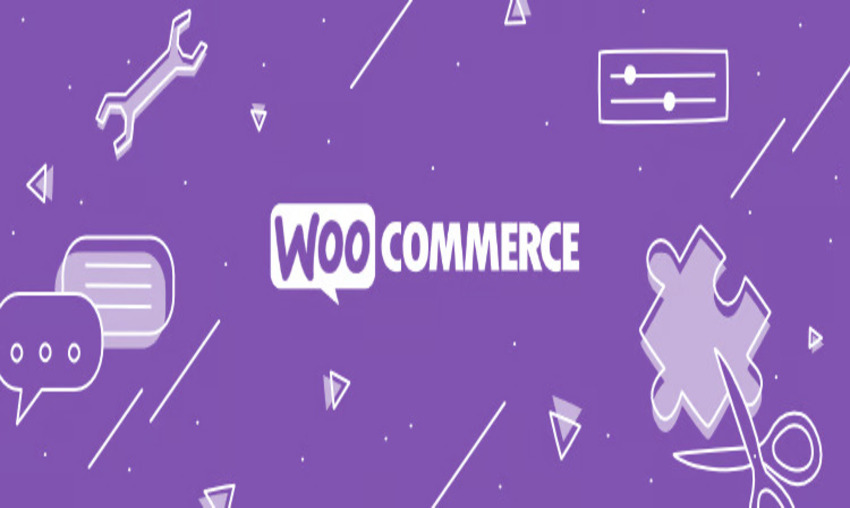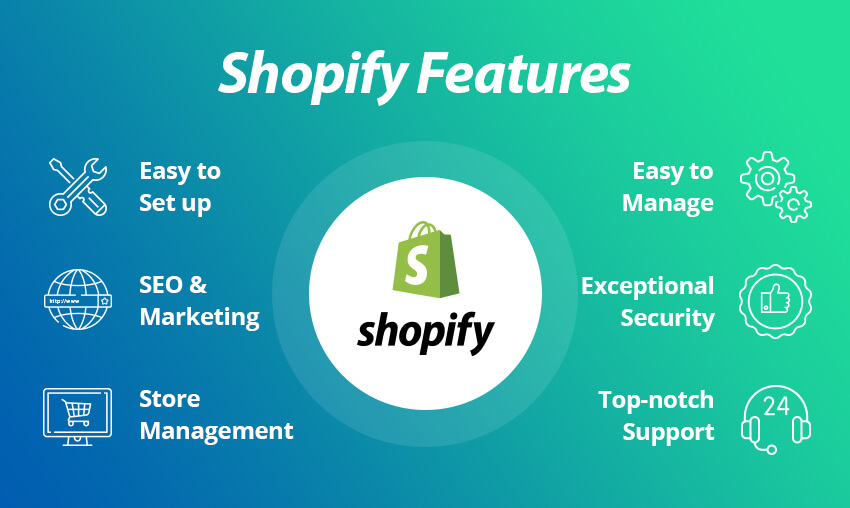From Dilemma to Decision: Picking the Right eCommerce Hero – WooCommerce vs. Shopify
Introduction:
- In the rapidly evolving world of e-commerce, choosing the right platform is crucial for the success of your online business. Two prominent players in the market, WooCommerce and Shopify, offer robust solutions for entrepreneurs looking to establish and grow their online presence. In this comprehensive comparison, we’ll delve into the key aspects of WooCommerce and Shopify, providing insights to help you make an informed decision for your e-commerce venture.

WooCommerce: Brief Overview
Key Features of WooCommerce:
- WooCommerce, a WordPress plugin, empowers businesses to turn their WordPress websites into fully functional online stores. Known for its flexibility and customization options, WooCommerce is an open-source platform that seamlessly integrates with WordPress, making it an ideal choice for those who
prefer the familiarity and versatility of the WordPress ecosystem.
Key Features of WooCommerce:
- Open-source and highly customizable
- Extensive range of plugins and extensions
- Integration with WordPress for content management
- Cost-effective for small to medium-sized businesses
- Suitable for businesses with diverse product offerings
Shopify: Brief Overview
Key Features of Shopify:
- Shopify, on the other hand, is an all-in-one e-commerce solution designed for businesses of all sizes. As a hosted platform, Shopify takes care of hosting, security, and technical aspects, allowing users to focus on building and growing their online stores. Known for its user-friendly interface, Shopify is an excellent choice for those seeking a hassle-free and scalable e-commerce solution.
Key Features of Shopify:
- Fully hosted, eliminating the need for separate hosting
- User-friendly interface with a quick setup process
- Extensive app store for additional features and functionality
- Built-in payment gateway for seamless transactions
- Ideal for businesses with a straightforward product catalog

What To Look For in an E-Commerce Platform ?
- Selecting the right e-commerce platform is a pivotal decision that can significantly impact the success of your online business. To ensure you make an informed choice, consider the following key factors when evaluating potential platforms:
1. Scalability:
- Why it Matters: As your business grows, your e-commerce platform should seamlessly scale to accommodate increased traffic, transactions, and product offerings.
- What to Look For: Evaluate the platform’s ability to handle growth by assessing its performance under heavy loads, availability of scalable hosting plans, and successful case studies from businesses similar to yours.
2. Ease of Use:
- Why it Matters: An intuitive and user-friendly interface simplifies the setup process and day-to-day management, reducing the learning curve for you and your team.
- What to Look For: Choose a platform with a straightforward setup process, an easily navigable dashboard, and robust customer support. Look for platforms that provide training resources and documentation to facilitate a smooth onboarding experience.
3. Cost:
- Why it Matters: Understanding the total cost of ownership is crucial to avoid unexpected expenses and ensure the platform aligns with your budget constraints.
- What to Look For: Evaluate the pricing structure, including subscription fees, transaction costs, and any additional expenses for necessary plugins or extensions. Consider the long-term costs associated with the platform, keeping in mind potential growth and increased resource requirements.
4. Customization:
- Why it Matters: The ability to tailor your online store to reflect your brand identity and unique offerings is essential for standing out in a
competitive market. - What to Look For: Assess the level of customization offered by the platform. Look for themes and templates that align with your brand aesthetics, as well as the availability of tools for modifying the layout, design, and functionality of your online store.
5. Integrations:
- Why it Matters: Seamless integration with third-party tools and services enhances the overall functionality of your e-commerce store, providing additional features and capabilities.
- What to Look For: Evaluate the platform’s security features, including SSL certification, secure payment gateways, and compliance with industry standards. Look for platforms that offer regular security updates and have a solid reputation for safeguarding customer data.
6. Mobile Responsiveness:
- Why it Matters: A growing number of consumers shop on mobile devices, so a mobile-responsive e-commerce platform is essential for providing a seamless user experience across various devices.
- What to Look For: Check if the platform offers mobile-responsive themes and ensures that the online store functions smoothly on smartphones and tablets. Mobile optimization is critical for reaching a broader audience and maximizing sales opportunities.
7.SEO-Friendliness:
- Why it Matters: Search engine optimization (SEO) plays a crucial role in driving organic traffic to your online store. An SEO-friendly platform can contribute to higher search engine rankings.
- What to Look For: Assess the platform’s built-in SEO features, including customizable meta tags, clean URL structures, and the ability to integrate with SEO plugins. A platform that prioritizes SEO best practices can help improve the visibility of your online store in search engine results.
8. Customer Support and Community:
- Why it Matters: In the event of issues or questions, responsive customer support is invaluable. Additionally, a thriving community can provide valuable insights and support.
- What to Look For: Explore the customer support options offered by the platform, such as live chat, email support, and documentation. A platform with an active user community can be beneficial for exchanging ideas, troubleshooting, and learning from the experiences of other merchants.
9. Analytics and Reporting:
- Why it Matters: Informed decision-making requires access to data. Robust analytics and reporting tools help you track sales, understand customer behavior, and optimize your strategies.
- What to Look For: Evaluate the platform’s built-in analytics features, such as sales reports, customer behavior tracking, and conversion analytics. Integration with external analytics tools or compatibility with Google Analytics can further enhance your ability to gather actionable insights.
10. Regulatory Compliance:
- Why it Matters: E-commerce businesses must comply with various regulations, such as data protection laws and consumer rights, depending on their geographic location and target audience.
- What to Look For: Ensure that the platform adheres to relevant regulatory requirements, such as GDPR or PCI DSS compliance. Understanding the platform’s commitment to data protection and consumer rights can prevent legal issues down the line.
Comparison WooCommerce and Shopify:
1. User Experience:
- WooCommerce:Ideal for users familiar with WordPress, providing a high level of flexibility and customization. However, it may require more hands-on management and technical expertise.
- Shopify: Known for its user-friendly interface with a straightforward setup. Suitable for users who prioritize a hassle-free and intuitive experience, especially if they are not experienced with website development.
2. Maintanence:
- WooCommerce: Requires regular updates and maintenance, as it operates within the WordPress ecosystem. Users need to manage hosting and security, making it more suitable for those comfortable with technical tasks.
- Shopify: Fully hosted solution, meaning maintenance tasks such as updates, security, and backups are handled by Shopify, providing a more hands-off experience for users.
3. Design and Themes:
- WooCommerce: Offers extensive theme options that are highly customizable to match brand aesthetics. Themes can be tailored to specific needs, providing a high degree of flexibility.
- Shopify: Provides a wide range of professionally designed themes. While customization is possible, it may have some limitations compared to WooCommerce. It’s suitable for users who prioritize quick and visually appealing designs.
4. Sales and Marketing Tools:
- WooCommerce: Robust set of marketing tools, leveraging the vast library of WordPress plugins for SEO, content marketing, and more. Users have the flexibility to choose from various third-party tools.
- Shopify: Built-in tools for marketing, including discounts, gift cards, and abandoned cart recovery. The app store provides additional marketing capabilities, offering an integrated solution.
5. Costs:
- WooCommerce: Generally lower upfront costs as it’s a WordPress plugin. Costs can vary based on hosting, themes, and plugins, providing users with more control over their budget.
- Shopify: Monthly subscription fees cover hosting and basic features. Additional costs may arise from apps, transaction fees, and premium themes, potentially leading to higher ongoing expenses.
6. Integrations and Add-ons:
- WooCommerce: Boasts a vast library of WordPress plugins for almost any functionality, providing extensive integration capabilities with third-party services.
- Shopify: Offers an extensive app store with a variety of integrations, including native integrations with popular tools and services, providing users with a wide range of options.
7. Scalability and Growth:
- WooCommerce: Scales well for businesses of all sizes, especially those already using WordPress. Customization allows for growth, making it suitable for both small businesses and larger enterprises.
- Shopify: Known for its scalability, offering plans suitable for small startups to large enterprises. It handles increased traffic and transactions effectively, making it suitable for businesses at various stages of growth.
8. Dropshipping:
- WooCommerce:Supports dropshipping through various plugins, providing users with control over suppliers and fulfillment methods.
- Shopify: Integrated with many dropshipping apps, making it easy to set up and manage dropshipping businesses, offering a more streamlined experience.
9. Security:
- WooCommerce: Security relies on WordPress best practices. Regular updates and proper hosting configurations are essential for maintaining a secure environment.
- Shopify: Offers fully managed security, including SSL certification. Regular updates and security measures are handled by Shopify, providing a more hands-off approach for users.
10. Payment Methods:
- WooCommerce: Supports a wide range of payment gateways, giving users control over payment processing methods and flexibility to choose the most suitable options.
- Shopify: Offers its own payment gateway (Shopify Payments) along with various third-party options, providing users with a variety of choices.
11. Support:
- WooCommerce: Support depends on the hosting provider and community forums. Official support is available for paid WooCommerce extensions, with a reliance on community resources for free plugins.
- Shopify: Provides 24/7 customer support through various channels, along with extensive documentation and community forums, offering a more comprehensive support system.
We‘reheretohelp
Here’s a set of tailored solutions to help you and your customers navigate these times and beyond